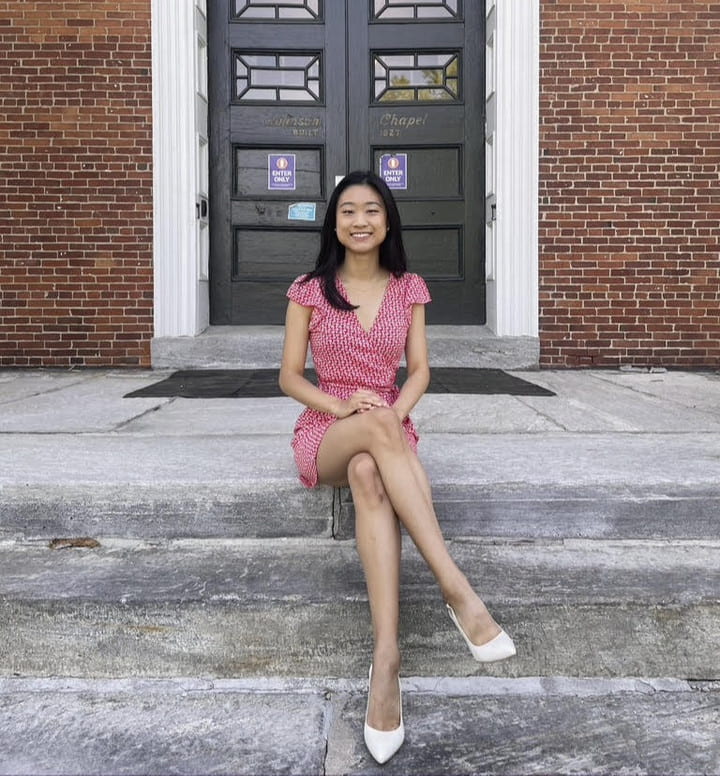
The following was adapted from an email interview between Sarah Lapean and Lesley Zheng.
Tell us a bit about yourself; what life experiences influenced you to write a senior thesis?
I am a computer science and mathematics double major. I was born in New York, but I grew up in Beijing, China. Growing up, my older sister and a lot of my friends were interested in research in the natural sciences or related to the pre-med track. I knew from a young age that I did not want to become a doctor, and I was interested in computer science, but I had no idea what it meant to do research in computer science.
One pivotal moment was the summer after my first year at Amherst College. I participated in SURF with Professor Scott Alfeld in the Computer Science Department. I worked with three other students on applying machine learning models to a fake news dataset and identifying the sources of a collection of articles. It was a fun and encouraging experience. However, as a first year who had only taken Data Structures, what I could do was very limited. From then on, it was always in the back of my mind to do a senior thesis, so I could delve more deeply into the work.
Can you please talk about the research you’re doing for your senior thesis?
My thesis studies what happens when we account for polling under the JSQ-D dispatching policy in a large-scale homogenous system. A large scale homogeneous system is a computer system with many computer servers, each with the same processing capacity. In every system, jobs are assigned to servers by the dispatcher, which follows a dispatching policy. The JSQ-D dispatching policy assigns jobs to servers by polling d servers, where d is usually a small constant compared to the total number of servers in the system, and assigning the job to the server with the smallest number of jobs in its queue. Prior work with JSQ-D does not explicitly account for the effect of polling on the mean response time (how long it takes for the job to travel through the system). However, in larger computer systems, polling does take up a non-negligible amount of time. In my thesis, I was interested in the effect of polling on mean response time. Specifically, I quantified a non-negligible amount of time for the dispatcher to poll a single server called the single-server communication time. Under JSQ-D, the amount of time a job spends at the dispatcher, or the total server communication time, is the maximum of d single-server communication times.
I approached my research both theoretically and empirically. Theoretically, I came up with the first analysis of mean response time under JSQ-D with a non-negligible constant single-server communication time. I found in a low load system, the larger the value of d (d > 1), the higher the mean response time. In a medium load system, there exists an optimal value of d that minimizes mean response time for every single-server communication time. In a high load system, the smaller the value of d, the lower the mean response time.
Empirically, I used a simulation to model polling based on different distributions and studied their behavior. I found that the higher the variance of the distribution of the model of polling, the larger the mean response time.
What kinds of responsibilities do you have when conducting your research?
The thesis process was much more independent than my SURF experience. I would meet my advisor, Professor Kristen Gardner, every Thursday for about half an hour to an hour. I would update her on my progress, and she would provide me feedback. Sometimes, if I got stuck on something, we would meet more often.
As a first-year, did you think you’d be writing a thesis? Did you stick with the field of study you originally thought you’d pursue?
I knew I wanted to write a thesis in computer science after my first SURF experience. Before that, I didn’t even know I wanted to major in computer science! I came to Amherst intending to become a history or mathematics major. I sometimes wonder how different my Amherst experience would’ve been if I did so.
What advice do you have for students interested in writing a thesis?
Communication is key!
You must be logged in to post a comment.